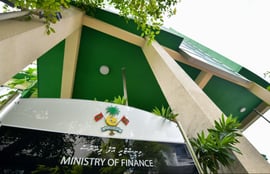The introduction of Chinese Yuan accounts, using Yuan for trade finance services and logging BML Ruifyaa cards to WeChat Pay is said to be an important step in decreasing Dollar dependency.
The Maldivian economy is currently quite dependent on the Dollar, just as how small island nations and developing nations are. The Dollar is used to purchase and import food, fuel and construction material. The Maldivian currency is also being held on the basis of the Dollar.
This is why the Maldivian Rufiyaa falls against the Dollar. Maldives also experiences the negative consequences of United States monetary policy changes and the changes in global Dollar liquidity.
BML has started working with China regarding the decrease of said dependency. Maldives is not the only country that is working towards decreasing Dollar dependency, with various implementations being seen. An example of this is to open a corridor for other currencies and build off of that.
When Russia began their attacks on Russia in February 2022, very few people speculated that the Yuan would be the most important foreign currency in the Russian market. Statistics from Russia show that their finance industry has balanced out quite quickly. The Yuan rose from three percent in 2022 to 54 percent in May 2024 on the Moscow Stock Exchange. When United States took steps against the Moscow Exchange during summer last year, Yuan transactions rose 99.8 percent.
Within a year, the Yuan has accomplished something that shocked everyone, which is the Yuan being the most popular currency on the Moscow Exchange, even more than the US Dollar. In 2023, Russian banks had 68.7 billion Yuan in Dollars, with the Dollar at 64.7 billion.
One of the best examples Maldives can look at is Bangladesh. The central bank of Bangladesh (Bangladesh Bank) had authorized the use of Yuan when importing products from China. This was done using a Yuan-based line of credit to conduct transactions. They did this in order to protect their foreign currency reserves and as a solution for their Dollar issues. Maldives has introduced this model to BML banking systems in order to save costs for importers and make them more robust.
Even if transactions with the Chinese Yuan have begun, and even if a small portion of preliminary Yuan transactions hold a fraction of the total trade, the importance of such a thing cannot be underestimated. Even when researching the strategies that were used by Bangladesh, Pakistan and Malaysia, an immediate and big change wouldn't be seen in Maldives.
In order to counteract the difficulties Pakistan faced regarding Dollar liquidity, they turned to China where they used the agreements they made with China to exchange currency. Due to the agreements, residents from both countries can conduct transactions and repay debts, something that is not possible with the Dollar.
In the last two years, Malaysia has strengthened their trade, investments and financial relationships within the region. As a result, their total trade with China and ASEAN has seen changes from 13 percent and 25.6 percent respectively in 2009 to 17.1 percent to 27.3 percent respectively in 2023. Their trade with America fell from 11.1 percent in 2009 to 9.5 percent in 2023.
When looking at other countries in the area, Maldives has the potential to reach a brighter and protected economy in the future through services that can be provided from the Yuan. The reality of these examples show that with the increase of monetary options, an important buffer is being put into place to counter future financial shocks. This can bring about a sustainable future.
Even if transactions with the Chinese Yuan have begun, and even if a small portion of preliminary Yuan transactions hold a fraction of the total trade, the importance of such a thing cannot be underestimated. Even when researching the strategies that were used by Bangladesh, Pakistan and Malaysia, an immediate and big change wouldn't be seen in Maldives.
It is important to recognize that this does not mean there will be a cease in the immediate use of the Dollar. The infrastructure of the global financial system was built mainly on the Dollar. And so, finding an alternative to the Dollar and letting go of it completely can be difficult. However, this can be seen as a "first step" of many in decreasing reliance on the Dollar. This is also strategic and very much needed diversification.
As said before the aim of this is not the immediate ejection of the Dollar as the Maldives' main international currency of use. Instead, this is to create an alternate option aside from the Dollar in order to conduct trade with China, one of Maldives' biggest trade partners. With an infrastructure being built with the Chinese Yuan at its foundation, this will set the Maldivian economy up for the future. These are steps being taken to strengthen trade, decrease transaction fees with main economic partners and in protection of the changes that stem from fluctuating Dollar rate.




